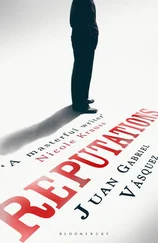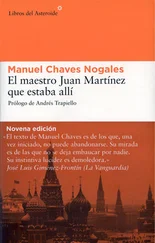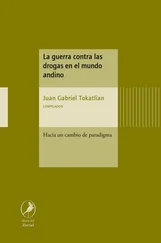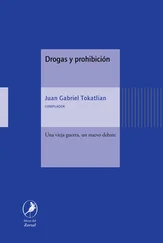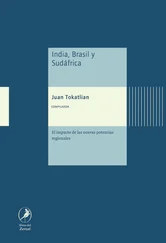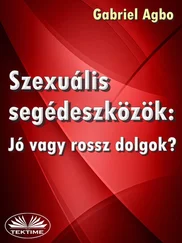“In the article you mention a hotel. You interviewed your main source there, the guy from the Olympic Committee, or whatever it was. Anyway, the one who knew all about the fraud.”
“Yes. That one.”
“Which hotel was it?” said the editor. “I need you to take me there. I need someone, a waiter, a bellboy, anyone, to recognize you.”
“It was the Ibis. The Ibis at the airport.”
“That’s what we thought. From the noises you describe in the text. But we called, and they have no record of a guest by the name of your source, and nobody remembers seeing anyone interviewed in the lobby.”
“All right, all right. It wasn’t in that hotel.”
“In the article you say it was.”
“That was to protect him. You saw the information the guy gave me. I wasn’t going to publish his address. Merde .”
“Don’t get upset. Just give me his phone number.”
“I don’t have it.”
“Tell me where he lives.”
“I don’t know,” said my father. “It was a while ago, I don’t keep files on the people I interview.”
The editor lowered his voice, as if what he was about to say was disgraceful to him, more than to my father.
“That piece is pure bullshit, and you know it. I’ll see you tomorrow at the office.”
They did not see each other at the office, because my father sent a resignation letter so he wouldn’t have to wait to be asked. By then, he had started drinking; the incident did nothing but confirm his reputation. A little while later, when I told him I was looking for student accommodation in Nanterre, he said: “I thought so. The rats are always the first to abandon a sinking ship.” I made excuses: it was true in part that I was sick of the daily trip from Paris to the university — the desolate cars of the RER, the crowds of sad men and women coughing over the previous day’s newspapers — but he was determined to believe that I despised his failure and was leaving him to sink alone. He never said so, of course. I had to interpret, to deduce it, as usual, from various comments here and there.
“So, how’s the fiction going, then?” asks my father.
I know he’s not expecting an answer. I think of saying I’m not the one who writes made-up things, Papa . But I don’t.
“Fine,” I say at half volume. “It’s going.”
My father stands up and we watch him walk toward the washroom. He leans on the backs of chairs, on the shoulder of a shaven-headed teenager who’s playing pinball, and on the doorknob, which is meant to look like an uncut diamond, a plastic prism so opaque that light does not reflect off it.
“He’s an expert,” I say. “I’ve never seen anyone so adept at the art of walking while drunk.”
“He’s already drunk?” asks Viviane.
“Of course he is. Don’t tell me you hadn’t noticed.”
“Well, he’s a charming drunk, your papa. The exact opposite of what you always told me.”
“What did I tell you?”
“You told me physical strength. You told me moral weakness. But what I see is quite different. Of course, it’s only the second time I’ve ever met him, or the third.”
“You’re right. It’s just that I barely know him.”
Viviane smiles. I get impatient.
“Now what?”
“The two of you make me laugh,” she says. “Your irony, your sarcasm. Even if you don’t admit it, you’ve inherited all that.”
I interrupt her: I’d rather avoid the psychology I used to get so often when we were a couple. I ask her, instead, how she is, how she’s been feeling. Viviane sets her glass down on the table.
“I don’t want to talk about us. This is not going to happen again, so it’s not something you should get used to.”
“I didn’t…”
“I came with you today because I know it’s important, or at least I believed what you said in your letter. But that’s as far as it goes. Don’t come looking for me again.”
“Understood.”
“Understood?”
“Yes, Viviane. Understood.”
“Okay, now, tell me something. Is it true you’re on antibiotics?”
“Of course not. I don’t even know what I have.”
“Ah, okay. Because I was going to say you shouldn’t be drinking any whiskey if you’re on antibiotics, let alone as much as this.”
Viviane has suddenly adopted a lighthearted, playful attitude, as if she wanted to forget about the bandage over my lymph node. The whiskey is an indispensable factor, of course. But Viviane’s behavior, by way of the brief alcohol-induced euphoria, is genuine and transparent. I’ve always liked that about her: there are no strategies or double intentions in Viviane. She is a woman who says what she thinks and never keeps things that need to be said to herself. Perhaps — I can’t say I hadn’t considered it — leaving her had been one of those mistakes that nothing can rectify. And for a while now that fear has been joining the others, and I’ve often wondered if I’d lost her by now, if I’d lost her forever. And then I don’t know if I’m frightened by the words or the fact of being stuck in the middle of the reality they describe. Mistake. Forever. Lost. Words like these scare me more than anything else.
When my father gets back, Viviane takes his arm to help him fall onto his chair, precise and rough like the ballast of a balloon.
“I wanted to ask you a favor, monsieur,” Viviane says, filling all three glasses up to the top. “Tell me about your son, tell me about his childhood. He’s so secretive, it’s impossible to get him to talk about himself.”
“Well, if this is how things are going, I’ll get lost,” I say. “Nobody’s going to force me to sit through this torture. Besides, I have to make a call.”
Above my father’s upper lip are white specks. His facial hair is dense and coarse, and when he’s shaved inattentively, like today, it’s inevitable that bits of toilet paper and loose threads from a napkin get stuck to his face. As I stand up and walk away toward the telephone, I hear him say:
“Agreed, my dear. But first, let’s order a nice steak. I’m starting to need some food to go with this drink.”
—
THE FINAL DAYS of our marriage passed by in the midst of a perfidious affability, at least on my part. I was attracted to Viviane; I hadn’t lost interest in her conversation; she wasn’t docile, but she knew how to make me feel that spending time with me satisfied her, which is perhaps the highest tribute a lover can hope for. I, for my part, used absurd euphemisms to name the rift or absence I’d begun to feel, those words that explode if you’re not careful, like a box of fireworks or a father-son relationship. On the morning of November 6 last year — I remember the date because a local magazine ran a devastating review of my book that day, not criticizing the book but rather my father, the man who had faked an article years earlier — that morning, as I said, as I watched her from bed, I knew as if someone were whispering it in my ear that we no longer had much time left together. I sat up in bed, all my senses focused on this woman. Viviane never closed the bathroom door (she always teased me about my exaggerated modesty) and now, unexpectedly, she was a Pierre Bonnard figure, a faceless woman drying her legs with a towel the color of tropical fruits, or rather the towel was caressing her, encircling her thighs, preparing the surface of her skin for the application of seaweed moisturizer. Never had I liked a woman this much: Why was I thinking of leaving? It had been her idea to travel to Tibet, as long as we could find a hotel where they spoke French or English. She was the one who banned me, during the time it took to write the book, from getting distracted by banal articles, saying we could easily live on her salary from the importer for a short time. Perhaps that had been the only thing I’d been sure of lately: without Viviane, I would never have finished that book. And in spite of that, there I was, sitting cross-legged on top of the sheets of the unmade bed, receiving the scent of her deodorant and the steam from the shower, watching her and desiring her and thinking of leaving her. My forehead was damp and so were my palms, and it took me a few seconds to understand: neither the steam nor the radiators were to blame. I was sweating.
Читать дальше

